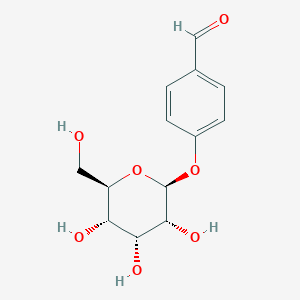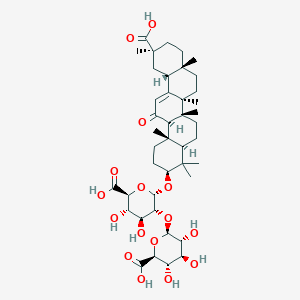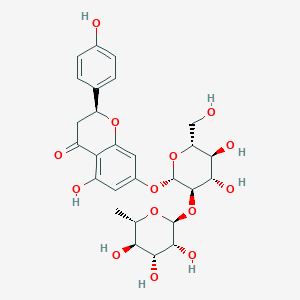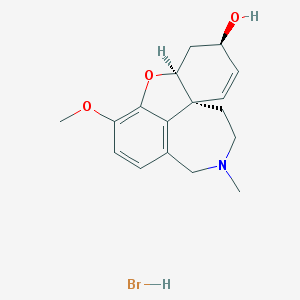Description
Helicide is a natural product found in Citrullus colocynthis, Helicia nilagirica, and Canella winterana. Helicid (Helicide, Helicidum, 4-Formylphenyl—D-allopyranoside) is a major constituent of Helicia nilgirica Bedd. Helicid has been used to treat psychoneurosis due to its sedative-hypnotic and analgesic properties.
The Helicid is a medication primarily used for treating conditions related to the stomach and esophagus. Its main benefits and applications include:
- Gastroesophageal Reflux Disease (GERD): Helicid is effective in treating GERD, a condition where stomach acid frequently flows back into the tube connecting your mouth and stomach (esophagus). This backwash (acid reflux) can irritate the lining of your esophagus.
- Peptic Ulcers: It is used in the treatment of peptic ulcers, which are sores that develop on the lining of the stomach, lower esophagus, or small intestine. They occur due to the stomach’s mucous layer being eroded by stomach acid.
- Zollinger-Ellison Syndrome: This medication is also used in treating Zollinger-Ellison syndrome, a rare condition that leads to excessive production of stomach acid.
- Prevention of Stomach Damage from NSAIDs: Helicid can be used to prevent stomach damage in people who take nonsteroidal anti-inflammatory drugs (NSAIDs), which can irritate or harm the lining of the stomach.
- Treatment of Erosive Esophagitis: It helps in healing and preventing the return of erosive esophagitis, a condition where the esophagus is damaged by stomach acid.
The primary mechanism of action of Helicid involves reducing the amount of acid produced in the stomach. It belongs to a class of drugs known as proton pump inhibitors (PPIs), which work by blocking a specific enzyme necessary for acid secretion in the stomach’s parietal cells.





